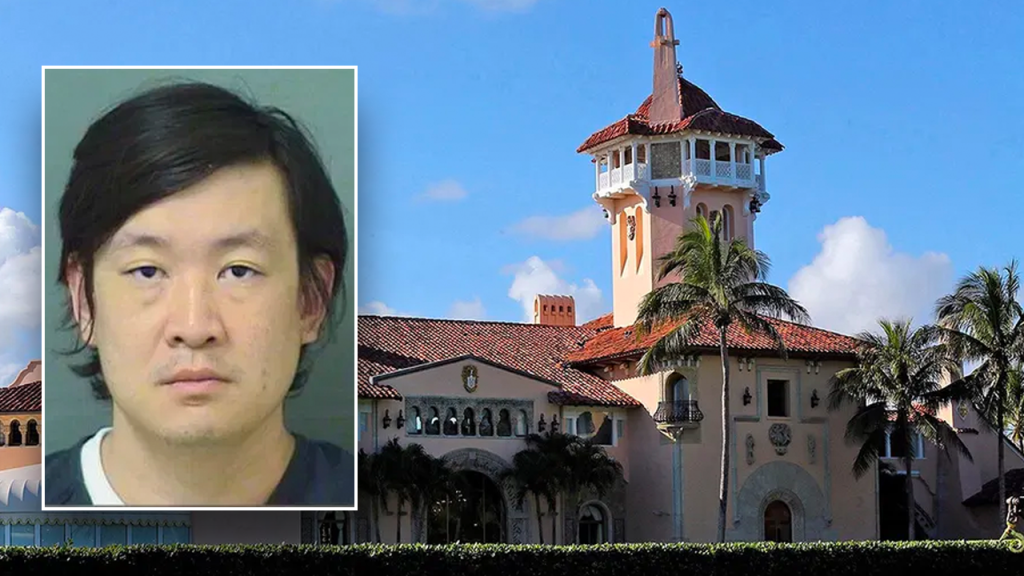A Chinese citizen, Zijie Li, was arrested after repeatedly attempting to gain access to former President Donald Trump’s Mar-a-Lago Club in Palm Beach, claiming to have documents linking China to an assassination attempt on Trump in July. The alleged shooter, Thomas Matthew Crooks, was killed by Secret Service agents after firing shots at Trump and his supporters during a rally in Pennsylvania. Following the incident, security around Trump’s properties was increased, prompting the closure of a nearby road. Li’s initial attempt to reach Mar-a-Lago was on July 19, even though Trump was not there at the time. Despite being warned not to return, Li made several more attempts to reach the estate.
Li’s second attempt to reach Mar-a-Lago on July 22 was captured on security cameras, showing him driving around the area. He was also spotted near the security checkpoint for Mar-a-Lago on July 30, leading to his arrest. Despite being released initially, Li continued trying to gain access to the property, resulting in his eventual arrest by Palm Beach Police. Temporarily flight restrictions have been issued for Trump’s return to Mar-a-Lago, where Li is not the first Chinese citizen to face charges for trying to access the club. A 32-year-old Chinese woman was arrested in 2019 for similar reasons.
Li used a Mandarin translator during his court appearance and was given a no-contact order for Trump, his associates, and his properties. His next court appearance is scheduled for August 5. It is not clear why Li was so persistent in trying to reach Mar-a-Lago or what evidence he claimed to have linking China to the assassination attempt on Trump. The incident underscores the security concerns surrounding high-profile individuals like Trump and the measures taken to ensure their safety. Li’s actions could have potentially put Trump and others at risk, highlighting the importance of maintaining strict security protocols at such locations.
The Secret Service’s response to Li’s attempts to reach Mar-a-Lago demonstrates their vigilance in protecting current and former political figures, as well as their dedication to upholding security measures around high-profile properties. Li’s behavior raises questions about his motivations and the potential threat he posed, prompting authorities to take decisive action to prevent any potential harm. Trump’s absence during Li’s arrest and subsequent return to Mar-a-Lago suggests that he was able to carry on with his activities without direct interference from the former president. The court’s decision to issue a no-contact order for Li further emphasizes the seriousness of his actions and the need to prevent any future attempts to breach security at Mar-a-Lago or harm Trump. Li’s case serves as a reminder of the ongoing security challenges faced by public figures and the measures taken to ensure their safety in potentially dangerous situations.


